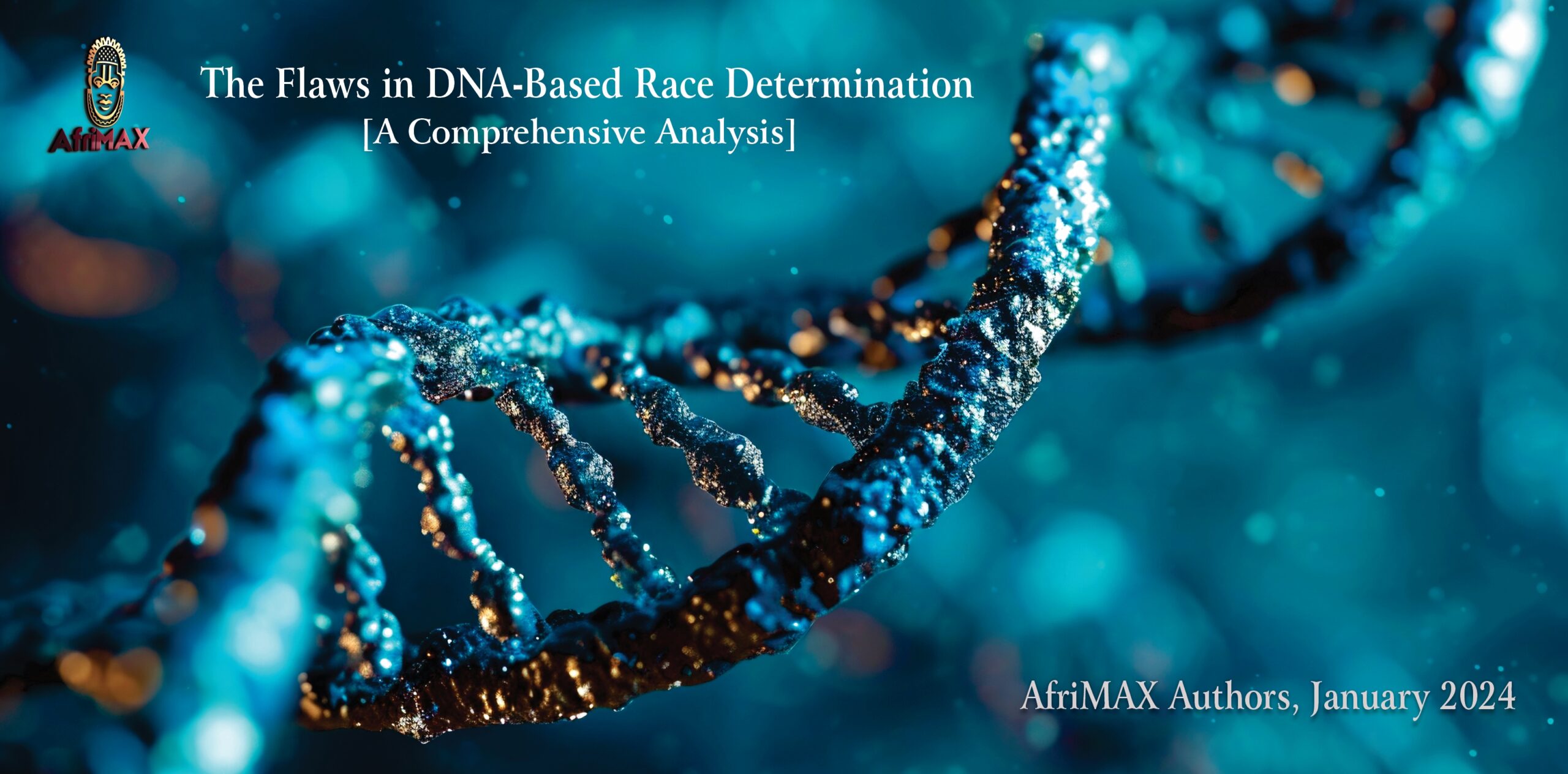
THE FLAWS IN DNA-BASED RACE DETERMINATION: A Comprehensive Analysis
Abstract:
This scholarly article critically examines the inherent flaws associated with the application of DNA-based race determination, shedding light on the complexities and limitations of this approach. Drawing on peer-reviewed articles, we delve into the challenges and ethical considerations surrounding the use of genetic information to infer racial identity. As advancements in genomic research continue to unfold, it is imperative to recognize the delicate nature of human genetics and the inadequacies of reducing race to genetic markers.
Introduction:
The quest to unravel the mysteries encoded in the human genome has led to significant strides in the field of genetics, with DNA-based technologies gaining prominence in various applications. One such application is the determination of an individual’s racial background using genetic information. However, this approach is not without its flaws, and this article aims to critically analyze the limitations associated with DNA-based race determination.
Inadequate Representation:
DNA databases used for race determination are often skewed towards certain populations, leading to underrepresentation of diverse groups. This limitation is discussed by Popejoy and Fullerton (2016), who argue that biased databases can result in inaccurate predictions for underrepresented communities. The lack of inclusivity exacerbates the flaws associated with DNA-based race determination.
Genetic Diversity and Ancestry:
Human genetic diversity is vast and intricate, with multiple factors influencing an individual’s genomic makeup. A key flaw in DNA-based race determination lies in oversimplifying this complexity. A study by Tishkoff et al. (2019) highlights the extensive genetic variation within populations, challenging the notion that distinct genetic markers can accurately represent racial categories.
Admixture and Hybridity:
Another critical aspect to consider is the prevalence of admixture and hybridity in human populations. As demonstrated by Bryc et al. (2015), populations exhibit intricate patterns of gene flow and intermixing, making it challenging to draw clear-cut boundaries between racial groups. DNA-based race determination often overlooks these complex patterns, leading to oversimplified and inaccurate conclusions.
Population Stratification:
The issue of population stratification poses a significant challenge to the reliability of DNA-based race determination. Pritchard and Rosenberg (1999) discuss how population substructure can confound genetic studies, leading to misinterpretation of results. Applying this concept to race determination, it becomes evident that genetic markers may reflect geographic origin more than racial identity.
Ethical Implications:
Beyond scientific challenges, there are ethical concerns surrounding the use of DNA-based race determination. Lee et al. (2018) emphasize the potential for reinforcing racial stereotypes and stigmatization, raising questions about the societal impact of these genetic categorizations. The oversimplification of complex genetic information may contribute to the perpetuation of harmful biases.
Policy Implications:
The flaws in DNA-based race determination have profound policy implications. By relying on genetic markers, policymakers may inadvertently perpetuate systemic biases and reinforce existing inequalities. This issue is explored by Kahn (2019), who advocates for a comprehensive understanding of genetics in the development of policies related to race.
Conclusion:
In conclusion, the flaws in DNA-based race determination underscore the need for a more refined and in-depth approach to understanding human genetic diversity. Acknowledging the limitations and complexities discussed in this article is crucial for avoiding the perpetuation of stereotypes and biases. As genetic research advances, it is imperative to approach race determination with caution, emphasizing the importance of a multidimensional understanding of human identity.
By: AfriMAX Authors, January 2024.
More Scholarly Resources:
-
“The Myth of Race: The Troubling Persistence of an Unscientific Idea” by Robert Wald Sussman (2014) – This book provides a comprehensive examination of the scientific inaccuracies of racial categorizations.
-
“Race and the Genetic Revolution: Science, Myth, and Culture” by Sheldon Krimsky and Kathleen Sloan (2011)- This work explores the complex interplay between genetics, race, and society.
-
“Fatal Invention: How Science, Politics, and Big Business Re-create Race in the Twenty-First Century” by Dorothy Roberts (2011) – Dorothy Roberts critically examines the impact of genetics on the concept of race and its consequences.
-
“The Emperor’s New Clothes: Biological Theories of Race at the Millennium” by Joseph L. Graves Jr. (2001) – This collection of essays by various scholars dissects the flaws in biological theories of race.
These books offer a diverse range of perspectives on the topic of race and genetics and will provide you with valuable insights and references for scholarly discussions on this subject. Remember to consult other academic libraries, databases, and peer-reviewed articles for further research and citations.
CLICK on the logo for homepage
...restoring the black ancestral tribes, languages, and cultures



